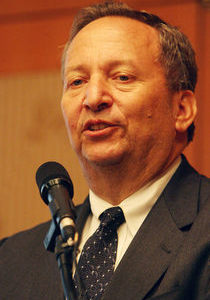 |
Former treasury secretary says reserves linked to U.S. deficit
Professor Lawrence Summers of Harvard University said that South Korea has about US$70 to 80 billion in excessive foreign exchange reserves. South Korea’s foreign exchange reserves currently reach US$227 billion. During an international forum on foreign currency management hosted by the Bank of Korea (BOK) on September 15, Summers, former treasury secretary of the United States, said that developing nations have excessive foreign exchange reserves. Summers said that the U.S.’s large current account deficit - amounting to 7 percent of the gross domestic product (GDP) - was the flip side of the excessive foreign reserves of developing nations. Perhaps to counter critics that say strong foreign reserves are necessary as a buffer, Summers stressed that "even if South Korea reduces its reserves, there won’t be another foreign currency crisis." Summers was visiting Seoul on his way to Singapore to participate in the annual meeting of the International Monetary Fund (IMF).As proper reserves for South Korea, he suggested a figure about twice the amount of short-term foreign debt. According to this suggestion, as of the end of 2005, South Korea’s proper currency reserves would be about US$140 to 150 billon, which is about $70 to 80 billion less than the current reserves of the nation. "It is wrong for the central banks of developing nations to depend on U.S. government bonds. These nations are giving up an opportunity to increase their GDP by about 1 percent annually because they are investing their US$2 trillion excess reserves in U.S. national bonds with low returns," Summers continued. He said that those nations gained just about 1.78 percent returns by investing in three-year U.S. Treasury bonds between 1970 and 2004, but they could get far more profit by investing their money elsewhere. If central banks of those nations have difficulty in making high-profit, high-risk investments, "they can form a joint fund" as a means of seeking investment, he suggested.





